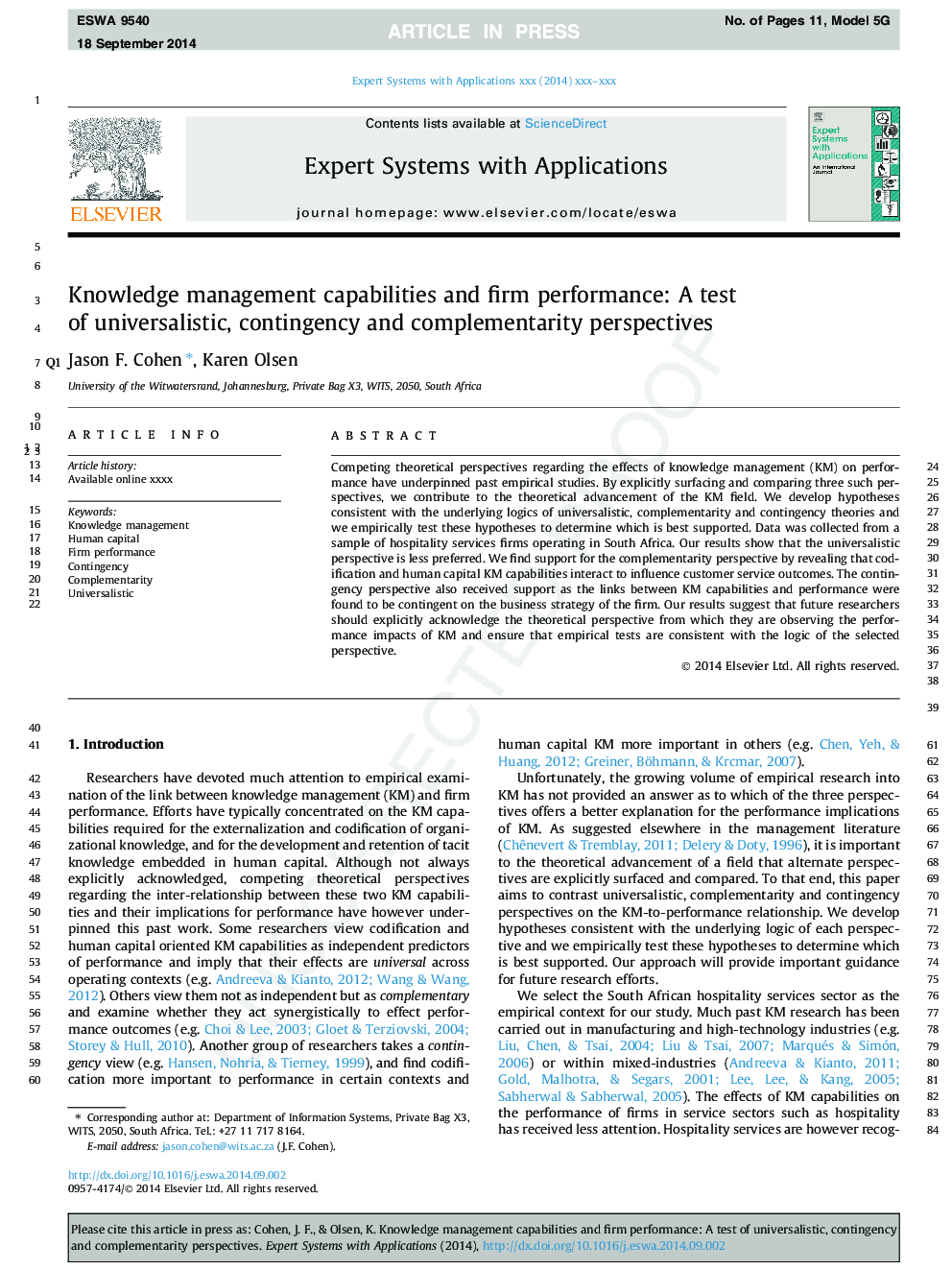| Article ID | Journal | Published Year | Pages | File Type |
|---|---|---|---|---|
| 10321898 | Expert Systems with Applications | 2015 | 11 Pages |
Abstract
Competing theoretical perspectives regarding the effects of knowledge management (KM) on performance have underpinned past empirical studies. By explicitly surfacing and comparing three such perspectives, we contribute to the theoretical advancement of the KM field. We develop hypotheses consistent with the underlying logics of universalistic, complementarity and contingency theories and we empirically test these hypotheses to determine which is best supported. Data was collected from a sample of hospitality services firms operating in South Africa. Our results show that the universalistic perspective is less preferred. We find support for the complementarity perspective by revealing that codification and human capital KM capabilities interact to influence customer service outcomes. The contingency perspective also received support as the links between KM capabilities and performance were found to be contingent on the business strategy of the firm. Our results suggest that future researchers should explicitly acknowledge the theoretical perspective from which they are observing the performance impacts of KM and ensure that empirical tests are consistent with the logic of the selected perspective.
Related Topics
Physical Sciences and Engineering
Computer Science
Artificial Intelligence
Authors
Jason F. Cohen, Karen Olsen,
